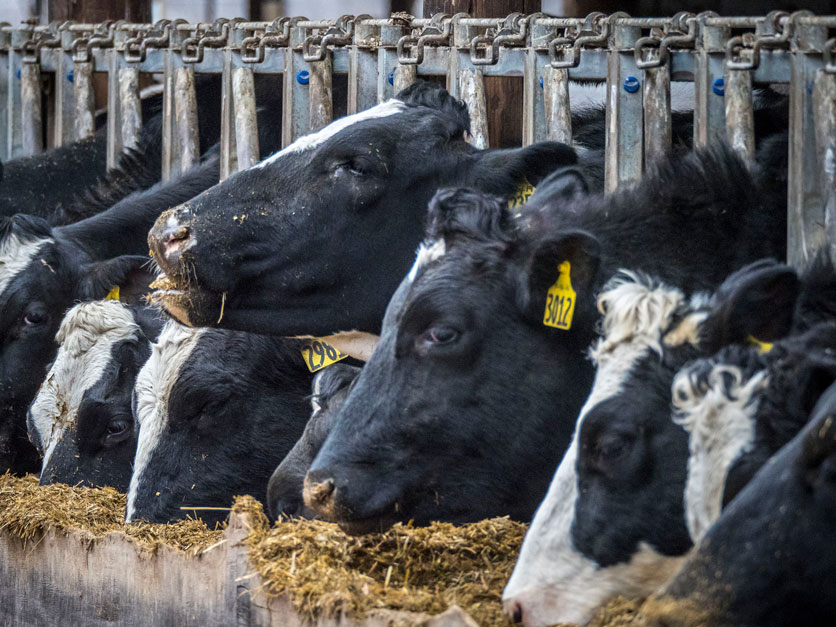Dairy analysts are urging milk producers who rejected the old Margin Protection Program to consider signing up for the new version created by the 2018 farm bill because it’s far more likely to provide payments than MPP.
Like MPP, the Dairy Margin Coverage program continues to offer payments when the difference between milk prices and feed costs falls below coverage levels chosen by the producer. But the top margin coverage level has been increased from $8 per hundredweight to $9.50 for the first 5 million pounds of production (Tier 1), the amount produced annually by about 240 cows.
From 2015 to 2018, the $9.50 margin level would have triggered payments in eight of every 10 months and more than six of every 10 months doing the four-year period, according to an analysis by the American Farm Bureau Federation. The average margin over that period was about $8.45.
From January through October 2018, the latest month for which data are available, the average margin ranged from $6.62 in April to $8.96 in October.
Had DMC been in effect in October, a producer who elected the $9.50 coverage level would have gotten a payment of 39 cents per hundredweight after paying the 15-cent premium.
“The improvements made in DMC would have provided much-needed financial support to dairy farmers during the recent downturn in the dairy economy,” the AFBF analysis said.
USDA currently projects that margins will stay below $9.50 into this fall.
Coverage under the program will be effective as of Jan. 1, but it's uncertain when producers will be able to enroll in the new program since the partial government shutdown has stalled USDA's implementation of the farm bill.
In another analysis, Cornell University economists Andrew Novakovic and Mark Stephenson say DMC “should provide a good level of risk protection for smaller farms at a very reasonable price” and “a basic level of protection for larger farms.”
The bill’s benefits are targeted at saving smaller dairy operations, which have been going out of business at an alarming rate in many states in 2018, but the bill also included enhancements aimed at larger operations as well.
Premiums for production above 5 million pounds (Tier 2) were slashed by 88 percent at the $5 margin level to encourage large operations to buy at least that minimum amount of coverage. The bill also lowered the amount of total coverage a large producer must buy. Under MPP, producers were required to enroll at least 25 percent of their production history. Under DMC, the minimum amount producers must enroll is 5 percent.
There is no payment limitation in the program for large producers, who can also sign up for coverage under two insurance products, Livestock Gross Margin coverage and the Revenue Protection policies developed by AFBF and first offered in October.
In October and November, producers bought Dairy-RP policies covering about 10 billion pounds, or 5 percent of the U.S. milk supply.
The Cornell economists wrote, “Larger farms may also wish to employ a more complete risk management program by using LGM-Dairy, Dairy-RP, futures, options or cash forward contracting as there are no restrictions for joint use of DMC with other programs."
Yet another provision in the new farm bill that will benefit producers large and small allows them to claim rebates of premiums they paid under MPP. If they use their rebate to enroll in DMC, then they can get 75 percent of their money back to use toward the premiums. If they decide not to enroll, they can get half of their MPP premiums rebated.
As yet another enticement to sign up for DMC, producers can get a 25-percent discount on premiums if they enroll for the full five years of the farm bill, 2019 through 2023.
A spending bill enacted in early 2019 had made several changes to MPP, including sharp reductions in premiums, but enrollment was still sluggish. This time farm bill supporters and industry leaders believe they've found a program that will be broadly attractive, especially to smaller operations.
House Agriculture Committee member Glenn Thompson, R-Pa., said the program has been welcomed by producers in Pennsylvania. It “looks more affordable to them and more functional, something that will actually work," he said.
DMC "will be the effective program we need for the future," said Jim Mulhern, president and CEO of the National Milk Producers Federation.
For more news, go to Agri-Pulse.com.


